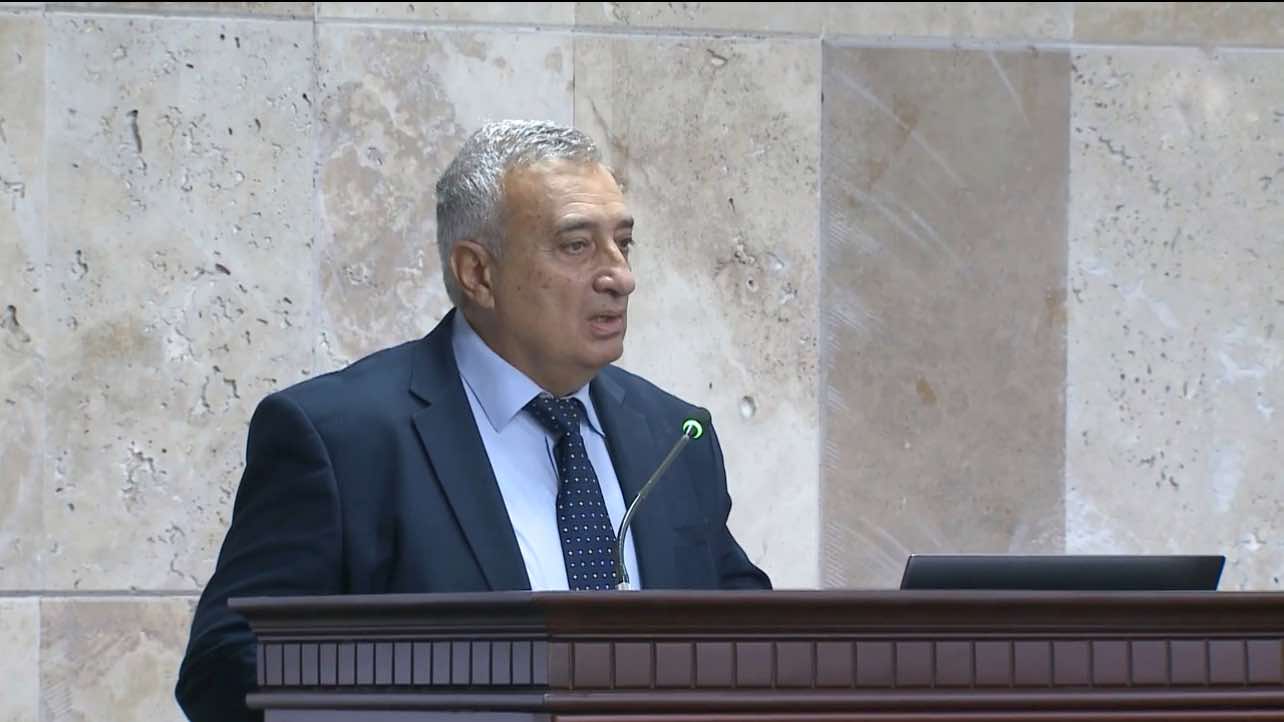From 19 to 21 September, Yerevan State University (YSU) hosted an international three-day conference titled The Armenian Genocide: Introspections of the Past and the Present. The event was dedicated to the 90th anniversary of The Forty Days of Musa Dagh, a seminal novel by Austrian writer Franz Werfel.

The conference commenced with participants laying flowers at Werfel’s bust in the YSU Memorial Alley, marking the official start of the proceedings.
The opening remarks were delivered by several distinguished speakers, including Academician Ashot Melkonyan, Director of the Institute of History at the National Academy of Sciences of the Republic of Armenia (NAS RA); Dr Vahram Shemmassian, Director of the Armenian Studies Program at California State University, Northridge; Director of Lepsiushaus Potsdam, Dr. Roy Knocker; Director of the Institute of Armenian Studies at YSU, Cd. Hist. Sci., Associate Professor Vahram Petrosyan; Dean of the Faculty of Oriental Studies at YSU, Cd. Hist. Sci., Professor Ruben Melkonyan; and Dean of the Faculty of European Languages and Communication at YSU, Cd. Hist. Sci., Associate Professor Gevorg Barseghyan. In his remarks, Ashot Melkonyan reflected on the aftermath of the 1915 Genocide, stating:
“The wound was fresh and deep. A people subjected to genocide and dispossession had forgotten the battles of self-defence they fought. Franz Werfel addressed the Armenian Genocide from a new perspective, illustrating that the Armenians were not merely victims but also fighters who resisted. Thanks to Werfel, genocide and self-defence were woven into a single narrative.”
He further underscored the significance of the conference:
“This event is of great importance from a practical perspective. I am pleased to see the participation of international scholars, with whom we will engage in the critical discussions this conference aims to address.”
Presentations from scholars of NAS RA’s Institute of History included:
- Ashot Melkonyan: The Armenian Genocide and Depatriation: 1894–1923 and 2020–2023 (Historical Parallels)
- Iskuhi Avanesyan: The 1988 Pogroms in Gandzak (Kirovabad) as Another Expression of Azerbaijan’s Genocidal Policy
- Hovik Avanesov: Comparative Analysis of Cultural Genocide in Western Armenia and Artsakh
- Arpine Bablumyan: Patterns of Internal Migration and Emigration in Van and Bitlis Provinces (Late 19th – Early 20th Century)
- Ani Fishenkjian: The Settlement of Armenians from the Alexandretta Sanjak in Syria
- Armen Marukyan: From Musa Dagh to Sinjar: A Comparison of Self-Defence Battles
- Gevorg Stepanyan: Stages of Armenian Ethnic Cleansing and Genocidal Policies in Eastern Cis-Caucasus (11th–20th Centuries)
- Lilit Hovhannisyan: The reflection of the idea of the forcibly deported Armenians returning to their homeland in Armenia, as presented in the periodicals “Battle,” “Homeland,” and “Asparez” in 1920.
- Karen Mkrtchyan: The Theme of the Armenian Genocide in Iranian Discourse
- Hasmik Amirjanyan: Catholicos Gevorg V Surenyants’ Support for Armenian Refugees (1915–1918)
- Seda Ohanyan: Levon Shaghoyan’s Role in the Rescue Operations in Van-Vaspurakan (March–August 1918)
- Mane Koninyan: The Humanitarian Activities of the American “Near East Relief” among Armenian Refugees (1918–1930)
Scholars from Yerevan State University, the Institute of History of NAS RA, the Armenian Studies Program at California State University, Northridge, and the Lepsiushaus in Potsdam participated in the conference.
The event facilitated an important dialogue on the Armenian Genocide, offering new perspectives and fostering international academic collaboration.




